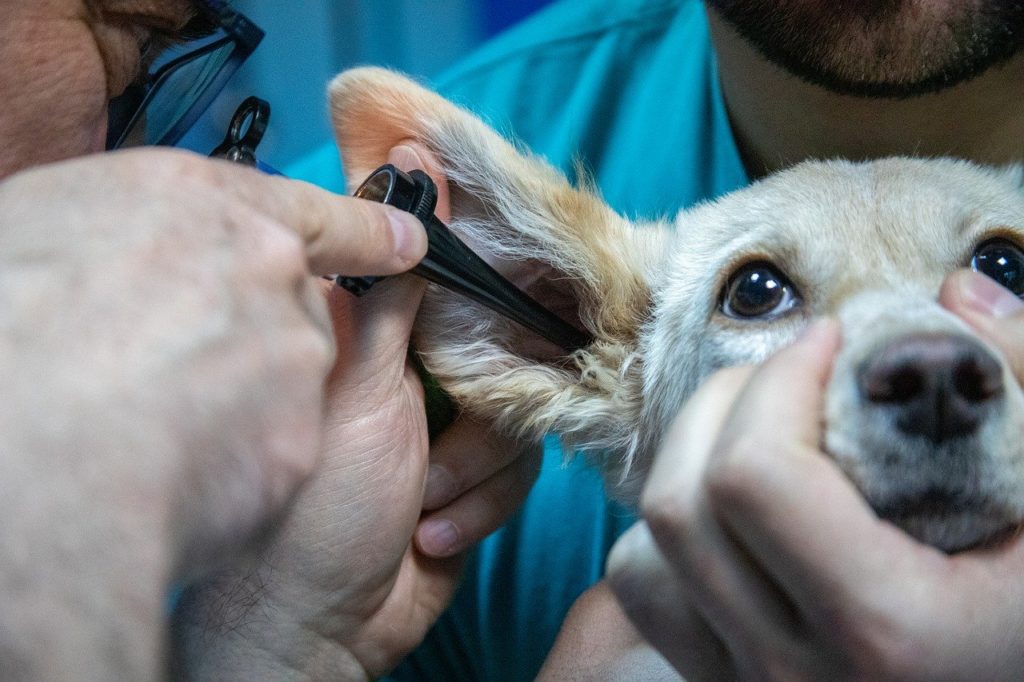CBD for Dogs and Cats: A Gift of Relief for Your Pets

The use of CBD for dogs and cats has not received scientific validation, yet numerous pet owners have found positive effects when giving it to their furry companions. Read on to learn what we know so far.
Although they are far from us genetically, our pets can suffer from much the same diseases and disorders as us. While many of the health complications they can experience often come down to parasitic infections, consequences of old age and internal chemical imbalances can catch up with cats and dogs and cause chronic conditions that can make their lives miserable.
What Do Pets Suffer From?
Non-parasitic diseases that are commonly diagnosed in household pets include pancreatitis, asthma and other respiratory infections, inflammatory bowel disease and other gastrointestinal disorders. These are often treatable with medication and rest, but they are stressful for the animal’s body and may even leave permanent damage.
Some of the most troubling and potentially lethal conditions that cats and dogs can experience include epilepsy, arthritis, diabetes, and cancer. Sadly, these diseases are difficult or sometimes even impossible to treat, and it is essential to try and help the animal by at least alleviating the symptoms.
Additionally, like humans, dogs and cats are also prone to anxiety. Occasional episodes of anxiety in pets are natural, but, if left unmanaged, they can evolve into a more debilitating condition. And, it’s not like pet psychologists are abundantly available to help manage your dogs’ or cats’ stress levels.
Some pets’ anxiety can be triggered by loud noises or otherwise sudden or scary events. If they had experienced discomfort in the past, they are also likely to connect this aversion with the circumstances that surrounded it (for example, going to the vet can often bring up anxiety in a dog).

Pets can also have a lot of trouble coping with being separated from their owner, and act out this anxiety through irrational behavior. Finally, older animals have a tendency to become more restless and anxious, possibly as a consequence of built-up discomfort reverberating through their bodies, and/or losing acuity of their senses.
CBD for Dogs and Cats – Does It Work?
If your pet is suffering from pain, inflammation, anxiety, arthritis, cancer, diabetes, epilepsy, or some other chronic disorder, an emerging new treatment is becoming available. CBD is a non-intoxicating cannabinoid which is slowly becoming one of pet-owners’ go-to tools for alleviating their furry companions’ symptoms.
CBD comes from the same plant as marijuana (Cannabis sativa) but it has no psychoactive properties whatsoever, and the products are entirely legal in the US since the legalization of hemp in 2018. This cannabinoid has been shown in human and rodent studies to have numerous health benefits, including managing symptoms of all the disorders listed above, and even helping with the reversal or prevention of some of them.
The major positive effects of CBD, and the best researched ones, are its impacts on reducing pain and inflammation, and lowering anxiety levels.
CBD exerts its analgesic (pain relief) and anti-inflammatory effects by indirectly interacting with the endocannabinoid system, one of the key internal systems in charge of regulating pain sensation. This process causes rapid alleviation which is sustained throughout the duration of the effects, and no tolerance to the compound has been found.
Additionally, the endocannabinoid system was reported to be involved in the processing of emotional memories. Due to this, CBD was investigated for its ability to treat collateral damage stemming from trauma. Both humans and rodents were found to experience significant reduction in aversive memories after having been treated with CBD. It’s a well-known fact that many pets also carry traumatic memories which may externalize as erratic behavior.
As for anxiety, CBD has been shown to stimulate the parasympathetic nervous system (which is responsible for promoting rest, healing, rejuvenating, and regeneration) and inhibit the sympathetic nervous system (which is responsible for eliciting stressful responses and triggering the fight-or-flight mechanism). It also affects the serotonergic system, regulating the receivers of the neurotransmitter serotonin, responsible for appetite, mood, and sleep.
These two processes are thought to be behind the general calming and stress-reducing effects of CBD. Additionally, the 5-HT1A serotonin receptor, which CBD directly influences in rodents and humans, was found to be connected with gastric relaxation in dogs. This could account for the apparent effectiveness of CBD in suppressing nausea and vomiting, as reports of dog owners who were able to help their furry friends with stomach problems indicate.
Like humans, dogs and cats have both the endocannabinoid and the serotonergic systems. So, in theory, CBD should work in similar ways on them as it does on humans and rodents. However, while we have an abundance of legitimate research into CBD’s effects on human and rodent subjects, we have none done on pets. There is only one pending study that aims to examine the efficacy of CBD for dog epilepsy.
So, in short, we don’t know if it works. But it seems like it does, at least in alleviating symptoms of pain, inflammation, arthritis, seizures, and anxiety. There’s a whole industry built around it, with a strong community of pet owners who swear by CBD, and veterinarians who endorse its use. It’s hard to imagine so many people rallying behind a product that doesn’t work.
Mark Verdino, MD, the senior vice president and chief of veterinary staff at North Shore Animal League America, described the positive effects of administering CBD oil to his own elderly dog:
“At night time when the lights are dimmed down, it’s dark out, they don’t see it well in the dark, and he gets a little spooked. And when I give him the CBD, he seems to just go to sleep […] So is it helping with the anxiety, or is it just making him drowsy? I don’t know, but it seems to help. So we have a symptom, and it helps with that symptom.”
Mark Verdino, MD, NSALA
Numerous other anecdotal reports of CBD products helping dogs and cats with various medical conditions and especially anxiety are available online. With CBD’s almost negligible side effects and well-proven track record of safety both on humans and rodents, it’s certainly worth a try for your cat or dog, and is especially handy to have around to reduce potentially traumatic visits to the vet.
How to Give CBD to Dogs and Cats
Giving CBD to pets works just like it does most other medicine, but CBD animal products also come in appetizing packages. Here are a few ways to go about it:
- CBD addition – just as with standard medications, CBD is possible to administer by adding either CBD oil or CBD edibles to your pet’s food. While most dry foods will mask the taste and texture of the CBD product, it’s not as easy to add it to wet foods as the edibles may stick out, and the oil may not be absorbed.
- Yummy CBD – many CBD products made for animals are seasoned or infused with a certain flavoring (such as bacon for dogs or salmon for cats) that few pets would decline.
- Tricky treat (dogs only) – when you are doing an activity with your dog that involves giving him or her a treat for a good job, you can simply try sneaking in the CBD edible instead of one of the treats.
- Straight to the point – if all else fails, you can always hold your furry friend’s mouth open and drip a few drops straight in.
- Topical CBD – if your pet is suffering from skin conditions like rashes or allergies, you can apply a CBD cream or balm directly to the affected area.
It’s very important to be mindful of the chemical makeup of the product you are giving your pet. Although CBD has been legalized, it’s still unregulated, meaning that the products available on the market are not standardized and their composition and concentrations can vary widely from provider to provider as well as from batch to batch.
Cats and dogs are much more sensitive to chemicals than humans. While veterinarians agree that CBD specifically should not cause any considerable side effects on pets (with mild sedation being the most prominent one), THC might, if it’s present in the product. This is why it’s very important to buy only from the absolute best CBD for pets retailers.
CBD Dosages for Dogs and Cats
As the use of CBD for pets lacks clinical validation, it’s difficult to talk precisely about the correct dosages. A general rule of thumb is to apply between 1mg (low dose) and 5mg (high dose) for every 10lbs of your pet’s weight. Here are some disorder-specific dosages that are currently being recommended by vets:
- Pain and inflammation: 0.25mg/lb of your pet’s weight three times per day or as needed;
- Anxiety: 0.25 to 0.5mg/lb of your pet’s weight 30min before an anxiety-inducing event or when they are experiencing an episode;
- Arthritis: 0.25mg/lb of your pet’s weight twice per day;
- Pancreatitis: 0.05mg/lb twice per day in the beginning and gradually increase up to 0.25mg/lb twice daily;
- Asthma: 0.25mg/lb twice daily;
- Seizures: 0.25mg/lb twice daily and gradually increase up to 1.5mg/lb
- Chronic Upper Respiratory Infections: 2.5mg/lb twice daily
- Inflammatory Bowel Disease: 0.1mg/lb twice daily
Starting out low is the best; you should gradually introduce CBD into your pet’s diet to make sure they are tolerating it well, as you certainly don’t want to add to their suffering. Our recommendation is to consult with the CBD product provider as well as your vet thoroughly before attempting to give your pets CBD.
Have you tried using CBD oil on your pets already? What are your experiences?
If you haven’t, are you considering it? What are your concerns?
Please share them with us in the comments below.
